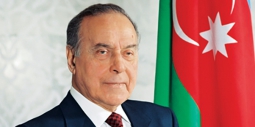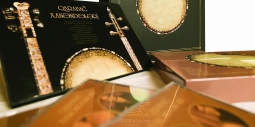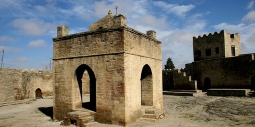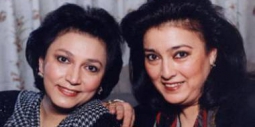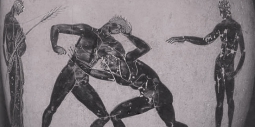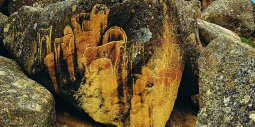Ancient traditions of the Azerbaijani sport
The tenth anniversary of the Azerbaijan Olympic Committee will be marked this year. The Committee was established in 1992, three months after Azerbaijan regained its state independence.
The concept of the Olympic Games is a wonderful development of human thinking, a sign symbolizing the entrance of the mankind into the era of culture, the era of humanism. Since the development of the concept, the human tendency for struggle could be expressed in a humanistic way - not on a battlefield, but through a game, competition, which is perhaps one of the most outstanding achievements of the ancient Hellas. At that time, an athlete who defeated his rival in a fair competition and reached the highest achievements in his kind of sport was considered one of the most honoured heroes of the country.
It is worth noting that during the Olympics all armed conflicts would stop and steps towards common peace would be taken.
In 1894, Pier de Coubertin established the International Olympic Committee, thus establishing the Contemporary Olympic Movement. The wonderful dream of the mankind was regenerated - victory in a fair struggle, victory not in a war but in a fair game played by fair rules, in a competition observed by arbitrators. Not only individual sportsmen but also entire countries compete in sports. Though various social and economic indicators of a country can be interpreted differently, its achievements in sports show exactly where the country is at in the international table of ranks.
The first Olympic Games were held in Athens in 1896. A century later Azerbaijan took part in the 26th Olympic Games in Atlanta as an independent state (for the very first time Azerbaijani sportsmen participated in Olympic Games 50 years earlier as part of the USSR team). Later Azerbaijan had a triumphant participation in the Summer Olympic Games in Sidney, Australia. A small team from Azerbaijan came back with two gold and one silver medals. For the 10 years of the Olympic movement in Azerbaijan, a new generation of sportsmen - a generation that has grown up in the independent republic of Azerbaijan - has been raised, numerous up-to-date sport facilities constructed in the country, and international championships have been held in the country.
Much attention has always been paid to physical training of children in Azerbaijan, since very often an individual's place in the society was determined by their ability to horse-ride, fence, shoot and fight. Grown-ups mastered their skills while hunting in war campaigns as well as numerous competitions and games that were held regularly and during holidays. Various horse and camel riding competitions and games were quite popular.
Chovken (polo) was considered the game of the elite and was held at well-kept fields. Even horses were specially bred for the game. However, everybody who could ride played Chovken, very often applying a little bit different scheme to the game. Royalty also played the game of Chovken, demonstrating their skills to their foreign guests and checking the sporting capacity of the latter. Children played Chovken right on the grass, learning to hold a mallet before learning to ride. Shooting competitions were well spread as well. Shooting through a ring on a long pole while riding was considered the most difficult among them.
The Azerbaijani free-style wrestling Gulesh has ancient roots and its various elements can be found in many eastern combats. The tradition to hold a combat between famous fighters - pahlavans during holidays has survived to our era. Pahlavans - heroic athletes were very popular among people.
To be called Pahlavan, one had to reach a certain level of physical training. Situations when the result of a battle or even war depended on the final combat between pahlavans are often described in Dastans. The names of many Azerbaijani pahlavans are mentioned by historic literature authors and poets.
Zorkhanas, palaces that were specially designed to hold numerous combats of pahlavans are thought to have started to be constructed during the reign of Shah Ismail. The domed buildings of Zorkhana, with arenas for performances and amphitheatres for audience, were, in a way, sport palaces of the time. The buildings of Zorkhana have survived to our time in Baku, Ganja and Ordubad. One can see sporting equipment of pahlavans that was used during combats at Zorkhana among other exhibits of the History Museum of Azerbaijan.
Intellectual games such as chess, backgammon and checkers were quite popular as well. Chess and checkers were played by the commonly known rules and "blindly". The latter method was used during long caravan marches and helped pass the time. Competitions of various kinds were accompanied by music. Even chess was played accompanied by the tender sounds of harp. In Zorkhanas, one could hear not only traditional music usually performed during combats and trainings, but also beautiful songs dedicated to the achievements of the heroic athletes sung in their honour.

